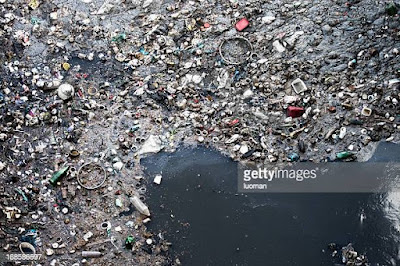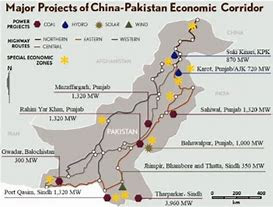Plastic pollution has become a serious concern worldwide, prompting the search for innovative solutions to reduce its harmful impacts. One such solution that has gained attention is the construction of roads using waste plastic. This approach aims to repurpose plastic waste and lessen its damaging effects while providing a sustainable and cost-effective alternative to traditional road construction materials. In this article, we will explore the concept of plastic roads, their success in various countries, and the pros and cons associated with their implementation.
Introduction
Plastic pollution has reached alarming levels, posing significant threats to ecosystems and human health. To fight this issue, innovative approaches are being explored to reduce plastic waste and find sustainable uses for it. One such approach is the construction of roads using waste plastic, which has gained attraction in several countries due to its potential benefits. Plastic roads aim to repurpose plastic waste and provide an environmentally friendly solution to traditional road construction.
Plastic Pollution and Environmental Concerns
Plastic pollution has become a global environmental crisis. The United Nations and various organizations are actively working to address this issue by implementing measures to reduce plastic usage and promote recycling. Plastic bags, bottles, and other single-use plastic items increase the pollution of land, water bodies, and ecosystems. The adverse effects of plastic pollution on wildlife and marine life are well-documented. Recognizing the urgency of the situation, the United Nations is considering a ban on plastic bags to be implemented by 2030.
Plastic Pollution: A Global Crisis Threatening Our Planet’s Future
Plastic Roads: An Innovative Solution
Plastic roads involve incorporating waste plastic into the construction of road infrastructure. The concept originated in India and has gained momentum in recent years. The process typically involves shredding plastic waste and mixing it with bitumen or asphalt to create a composite material for road surfacing. Plastic roads offer several potential advantages, including increased durability, reduced costs, and effective utilization of plastic waste.
Globally Adopted Idea
Here are a few examples of progress in plastic road construction from developed countries:
- The Netherlands: PlasticRoad, a Dutch company, has been at the forefront of developing and implementing plastic roads. They constructed the world’s first recycled-plastic cycle path in 2018. This innovative project aims to utilize recycled plastic in road construction, offering improved durability, reduced maintenance, and sustainability benefits.
- Scotland, United Kingdom: MacRebur, a Scottish company, was actively involved in promoting plastic roads. They have successfully laid plastic roads in various locations, including the first plastic road in the UK. MacRebur’s technology incorporates waste plastic, such as single-use bags and bottles, into the road construction process, providing cost savings and environmental advantages.
- United States: Dow, a leading chemicals firm, has been involved in implementing projects using recycled plastics in road construction. They have focused on using polyethylene-rich recycled plastics to enhance road performance and sustainability. These initiatives aim to reduce the environmental impact of plastic waste and improve road infrastructure.
- Australia: Plastic road construction projects have been undertaken in different states of Australia. For instance, the City of Kwinana in Western Australia has utilized plastic waste in road construction, reducing the amount of plastic ending up in landfills. These projects aim to promote recycling, reduce environmental pollution, and provide sustainable infrastructure solutions.
These examples highlight the growing interest and progress in plastic road construction in developed countries. These initiatives demonstrate the potential of plastic roads to address environmental concerns, enhance road performance, and contribute to a more sustainable future.
Plastic Roads in India
India has been at the forefront of experimenting with plastic-tar roads since the early 2000s. The country generates a significant amount of plastic waste and has implemented regulations mandating the use of plastic waste in road construction near large cities. This approach has resulted in thousands of kilometres of plastic-tar roads across India.
Plastic Roads in Pakistan
Pakistan has also embraced the concept of plastic roads. In Karachi, Shell Pakistan collaborated with local authorities and a start-up called BRR Enterprises to build a plastic-infused road using discarded Shell lubricant bottles. This project aimed to reduce plastic waste and promote environmental-friendly practices. Over 2.5 tons of discarded Shell lubricant bottles were recycled. These bottles were repurposed and utilized in building a road that spans 730 feet in length and 60 feet in width, specifically on the premises of Shell House. In September 2021, the Chairman of the Capital Development Authority (CDA), Amir Ahmad Ali, announced that Coca-Cola, as part of a pilot project, will construct a road section within F-9 Park Islamabad employing used plastic.
Advantages of Plastic Roads
1. Durability and Longevity
Plastic roads are more durable and longer-lasting compared to traditional roads. The incorporation of plastic waste improves the flexibility and resilience of the road surface, making it less prone to cracks and potholes. Studies have shown that plastic roads have a lifespan of almost three times longer than regular roads, contributing to reduced maintenance costs and longer service life.
2 Cost Reduction
One of the significant advantages of plastic roads is the potential for cost reduction. Traditional road construction materials can be expensive, especially in developing countries where resources are limited. By using plastic waste as a construction material, the cost of raw materials can be significantly reduced. Plastics are practically free and readily available, making them a cost-effective alternative.
3. Waste Management
Plastic waste poses a significant challenge in terms of proper disposal and recycling. Incorporating plastic waste into road construction provides an effective way to manage and repurpose plastic waste that would otherwise end up in landfills or contribute to pollution. Plastic roads offer a sustainable solution to the growing problem of plastic waste.
4. Lower Carbon Emissions
The production of traditional road construction materials, such as bitumen, generates carbon dioxide emissions. In contrast, using plastic waste in road construction can help reduce carbon emissions. Research indicates that incorporating waste plastic into roads can save up to three tonnes of carbon dioxide per kilometre of road. This reduction in carbon emissions contributes to minimising the effects of climate change.
5. Improved Road Performance
Plastic roads offer improved road performance in flexibility and resistance to wear and tear. The plastic content in the road surface provides better elasticity, allowing the road to withstand heavy loads and traffic. Plastic roads have shown promising results in minimizing potholes and reducing surface deterioration, leading to smoother and safer road conditions.
Challenges and Limitations
While plastic roads have several advantages, there are also challenges and limitations to consider:
1. Long-Term Durability
Although plastic roads have demonstrated durability in the short term, their long-term performance and durability under various climatic conditions are still being studied. Further research is needed to assess the long-term effects of plastic roads, including their resistance to extreme temperatures, heavy traffic, and other environmental factors.
2. Plastic Waste Sorting and Processing
Proper sorting and processing are necessary to utilize plastic waste in road construction. Different types of plastics have varying properties, and not all plastics may be suitable for road construction. Sorting and processing facilities should be in place to ensure the quality and compatibility of plastic waste used in road construction.
3. Public Perception and Acceptance
The public perception and acceptance of plastic roads play a crucial role in their widespread adoption. Some concerns have been raised regarding the potential release of microplastics or toxic substances from the road surface. It is important to address these concerns through careful research and transparent communication to gain public trust and acceptance.
Conclusion
Plastic roads offer a promising solution to address the challenges posed by plastic waste and traditional road construction materials. They provide durability, cost reduction, waste management, lower carbon emissions, and improved road performance. While there are challenges and limitations to overcome, ongoing research and pilot projects worldwide are helping to refine and optimize the use of plastic waste in road construction. As countries aim to create more sustainable infrastructure, plastic roads present an innovative and environmental-friendly approach.











One Comment